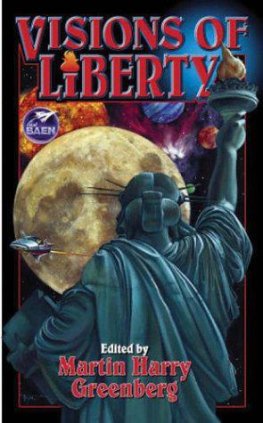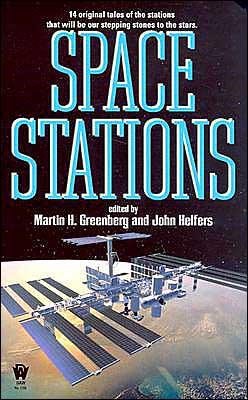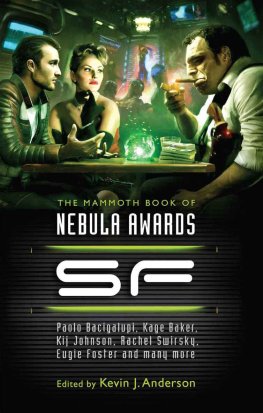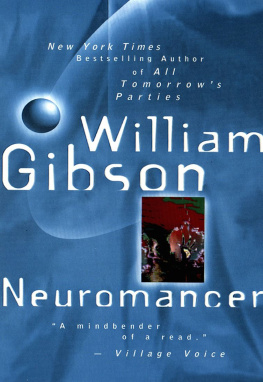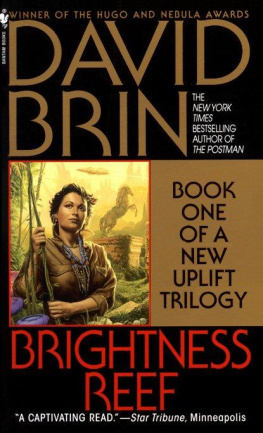VISIONS OF LIBERTY
edited by Mark Tier and Martin H. Greenberg
Introduction
VISIONS OF LIBERTY
by Mark Tier
Imagine were on a plane; weve crossed an ocean, weve landed; were taxiing up to the gate. As we file off the plane we have our passports ready.
But something rather strange happens: no one wants to look at them. We see no official-looking types of any kind.
Perhaps we have to get our luggage first. But as we come down to the baggage carousels we dont see any customs or immigration officials; nor do we see any barrier between us and the outside world. We can pick up our bags and walk straight out of the terminal off an international flight into a taxi. Which is exactly what we do.
Welcome to Freelandia, a countryperhaps its better to call it a placewhich is truly free: theres no government to invade and restrict our liberties. Of course, Freelandia doesnt exist (yet) except in my imagination.
And in science fiction, the literature of the imagination. Where else can we skim across the surface of black holes, dive into the sun, and journey to the beginning, the end, and the edge of the universe? And visit a society without government that works.
Could that be possible in reality, not just in science fiction? After all, if you counted the number of societies without government on the fingers of one hand, you wouldnt even open your fist. And if government disappeared, wouldnt the result be anarchy? Chaos? Isnt government an essential prerequisite of peace and order?
If we were to travel back in time, some ten or twenty thousand years, before the development of agriculture and the beginnings of civilization, we wouldnt find any governments as we know them today. Homo sapiens were hunter-gatherers, living in tribes of some hundred or so people. Yes, tribes have rulers too. Chiefs and shamans. But tribal chieftains rarely have the power to force their decisions on the members of their tribe. They are more like leading citizens who rule by moral suasion and consensus rather than police power.
That all changed with the development of agriculture some ten thousand years ago. For the first time, a few dozen square miles of land could support human populations much larger than a hundred-odd hunter-gatherers. For the first time, our ancestors stayed fixed in one place.
For the first time, there was something to loot.
Pick up any history book and youll find a record of kings, princes, shahs, chiefs, emperors, czars and their battles. What were they fighting over? Today, governments will tell you theyre fighting for freedom. But freedom is a very recent phenomenon. The concept of freedom originated with the Greeks and Romans, but did not become a part of the political landscape until the Renaissance just a few hundred years ago.
Even today, words that we take for granted like freedom, rights, liberty, and free will simply have no counterparts in most of the worlds languages. For most of the worlds people, these concepts just dont exist.
No medieval king or Indian maharajah ever fought for freedom. They fought to keep their power or to expand it. Their prize: the surplus they could extract from the peasantry that financed the building of their glittering palaces and ornate churches and temples. Todays major tourist attractionsthe pyramids of Egypt, the Taj Mahal, the Angkor Wat, Notre Damewere all built by forced or slave labor for the pure benefit of the rulers. There was no pretense that were doing this for your own good.
Many times, kingdoms and empires were overrun by latter-day hunter-gatherers. The Greeks and Romans called them barbarians; the Europeans called them Huns; the Chinese called them Mongols.
They came with only one objective: to loot as much as they could. And sometimes they stayed; after all, a steady stream of loot in the form of taxes can be more attractive than the spoils of hit-and-run raiding.
The greatest of these was Genghis Khan. His empire collapsed upon his death but his grandson, Kublai Khan, established the first alien dynasty to rule all Chinathe Yuan (1279-1368). History, of course, is written by the victors, so Genghis Khan and Kublai Khan were transformed from bandit leaders into great princes. After all, only losers remain barbarians.
From the agricultural revolution until the Renaissance, mankind had the choice of rule or be ruled; to be the oppressed or the oppressor. The idea of freedomthat you should neither rule nor be ruled, but be left alone to pursue your own happiness in your own way, and grant others the same rightdid not exist, just as it still doesnt exist in most parts of the world.
When you are ruled you have no rights. You are property. Such is the meaning of the divine right of kings, the ideology which flowered in Europe in the Middle Ages. Kingdoms did not have citizens; they had vassals. Under the divine right of kings, everything and everybody in the kingdom belonged to the monarch. Kings fought each other for territory and to the victor went the divine right to rule. In China, when a new dynasty was established they said that the old one had lost the mandate of heaven. In Japan, as in Thailand, the ruler was thought to be the representative of God on earth. All these names are no more than Orwellian double-speak to dress up and legitimize the reality that might was right.
We can trace the origin of government back to the first thug who spied the opportunity to live a life of ease on the backs of the peasants. His spiritual successors are still in our midst today, with names like Lenin, Stalin, Mao Zedong, Pol Pot, and Idi Aminand those petty bureaucrats who love to flaunt their power over you whenever you have some dealing with a government agency.
A revolution in the idea of government began with the Renaissance, was crystallized by John Locke among others, and came into being for the first time in human history with the American Revolution. The idea: that government should serve man instead of man serving government; that rulers should be the peoples servants, not their masters. That people have the innate right to life, liberty, and the pursuit of happiness, and that the purpose of government is to defend those rights, not to invade them for the benefit of the few at the top.
But how to create such a government? Because what sets government apart from every other organization is that it is the legal instrument of force within a society. No other group has the right to use force except in self-defense, and the people who do we call criminals.
When so much force is concentrated in one organizations hands, how can you limit its use? And you must, if you want to live in a free society; only the initiation of force can divert you from the pursuit of your own happiness. Only the initiation of force can threaten your life. The greatest danger to your freedom is not some foreign powerit is your own government. When Thomas Jefferson said the price of liberty is eternal vigilance, it was the government of the United States that he was warning his fellow citizens to be vigilant against.
The solution of Americas founding fathers was to delineate and restrict the role of government. Via the Constitution and the Bill of Rights they clearly (they thought) laid down what government could do, saying that everything else was reserved to the people.
Unfortunately, the imperative of every human organization is to grow. Businesses grow by making more sales and gaining market share; associations grow by signing up more members; governments grow by expanding their power.
This never happens overnight; government grows by salami tactics, slice by slice. For example, when the income tax was introduced in 1913 no one in his right mind would have suggested a top rate of 90 percent. In fact, there was considerable support for capping the income tax at 4 percent. This was shot down by those who argued that specifying such a maximum rate would mean the income tax would rapidly rise to that (then) horrific level. Can you imagine living in a world where an income tax of 4 percent is unthinkable!?

